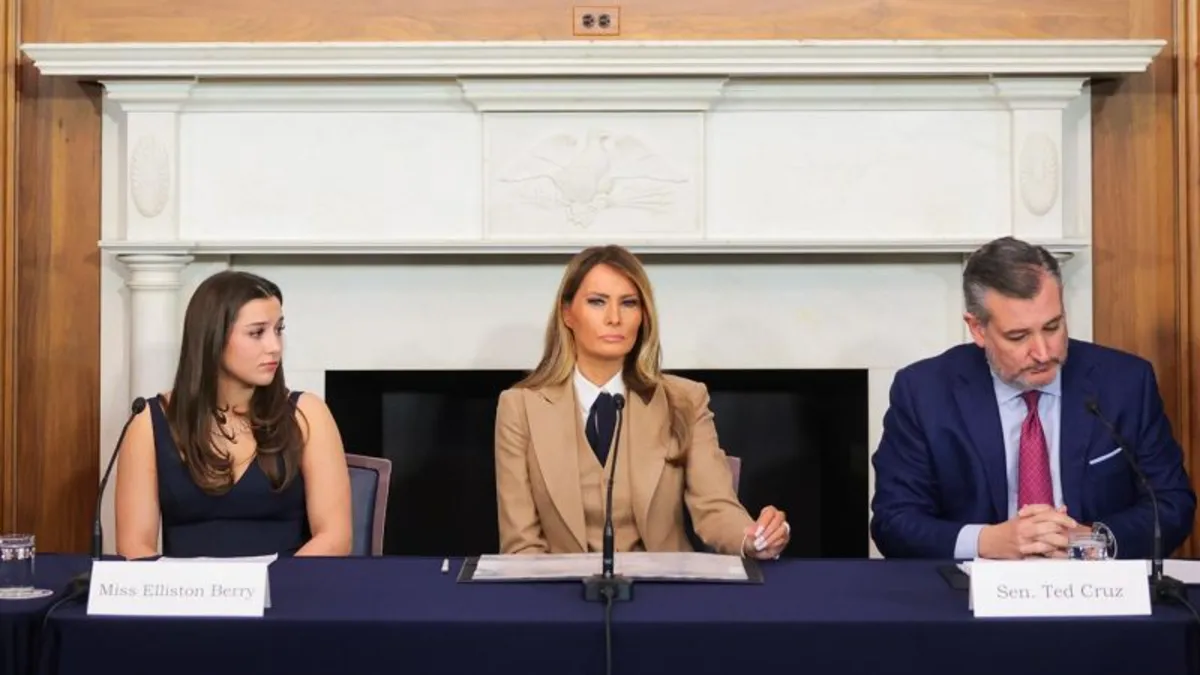
The US House of Representatives took a significant step toward enhancing online safety by passing the “Take It Down” Act on Monday. The bill, which aims to protect Americans from the dangers of deepfake and revenge pornography, received overwhelming support with a vote tally of 409-2. This legislation focuses on providing increased protections for victims of non-consensual sharing of sexual images, including those generated by artificial intelligence, commonly referred to as deepfake porn.
Following its passage in the House, the bill is now headed to President Donald Trump for his signature. First Lady Melania Trump has been a vocal supporter of this initiative, actively lobbying House lawmakers last month to ensure the legislation's success. Sources indicate that the president is expected to sign the measure into law soon.
In a statement celebrating the bipartisan success of the “Take It Down” Act, Melania Trump emphasized the importance of this legislation. “Advancing this legislation has been a key focus since I returned to my role as First Lady this past January,” she stated. “I am honored to have contributed to guiding it through Congress.” Reports suggest that she plans to be at the White House for the signing event, underscoring her commitment to the cause.
The issue of AI-generated pornographic images has impacted various individuals, including prominent figures like Taylor Swift and Rep. Alexandria Ocasio-Cortez, as well as vulnerable high school students. The Senate had previously passed the bill in February, reflecting strong bipartisan support during the last congressional session. The initiative was introduced by Republican Sen. Ted Cruz of Texas, with backing from a diverse group of lawmakers, including Democratic Sen. Amy Klobuchar of Minnesota and Rep. Madeleine Dean of Pennsylvania.
According to Cruz’s office, the “Take It Down” Act aims to criminalize the publication of non-consensual intimate imagery (NCII), which includes AI-generated NCII or deepfake pornography. Furthermore, the bill mandates that social media platforms and similar websites establish procedures for promptly removing such content upon notification from a victim, thereby enhancing accountability in the digital space.
Melania Trump’s advocacy for this legislation marks her first public remarks during her husband’s second term, reaffirming her commitment to the “Be Best” initiative, which initially focused on online safety. “It’s heartbreaking to witness young teens, especially girls, grappling with the overwhelming challenges posed by malicious online content, like deepfakes,” she expressed during an event on Capitol Hill in March. “This toxic environment can be severely damaging. … Every young person deserves a safe online space to express themselves freely, without the looming threat of exploitation or harm.”
During her recent appearance at a roundtable with lawmakers, survivors, and advocates against revenge porn, Melania Trump emphasized the need for protective measures against such harmful content. This engagement reflects her limited time spent in Washington but highlights her dedication to addressing critical issues affecting young people today.
This story will continue to evolve as further details emerge about the signing of the “Take It Down” Act and its implications for online safety and the protection of individual rights against deepfake and revenge pornography.